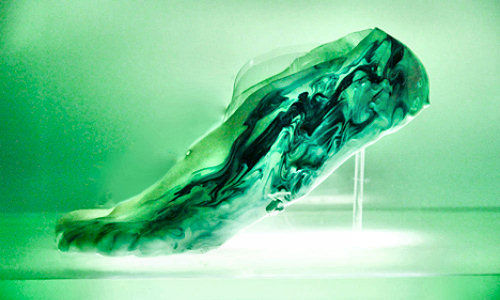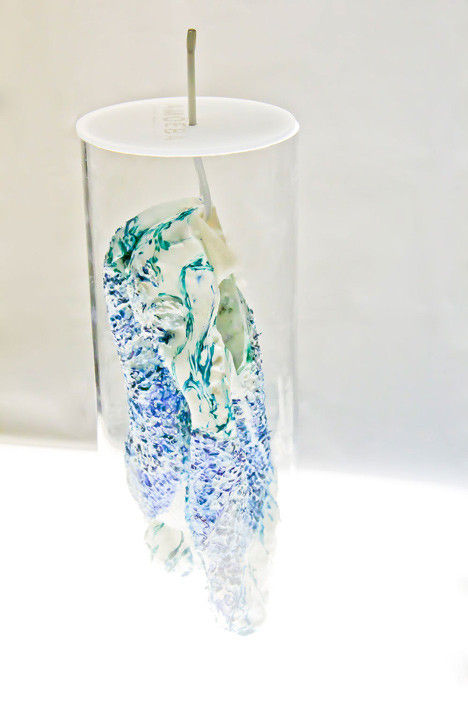London designer and researcher Shamees Aden is developing a concept for running shoes that would be 3D-printed from synthetic biological material and could repair themselves overnight.
Shamees Aden’s Protocells trainer would be 3D-printed to the exact size of the user’s foot from a material that would fit like a second skin. It would react to pressure and movement created when running, puffing up to provide extra cushioning where required.
Aden developed the project in collaboration with Dr Martin Hanczyc, a professor at the University of Southern Denmark who specialises in protocell technology. Protocells are very basic molecules that are not themselves alive, but can be combined to create living organisms.
By mixing different types of these non-living molecules, scientists are attempting to produce artificial living systems that can be programmed with different behaviours, such as responsiveness to pressure, light and heat.
“The cells have the capability to inflate and deflate and to respond to pressure,” Aden told Dezeen at the Wearable Futures conference in London. “As you’re running on different grounds and textures it’s able to inflate or deflate depending on the pressure you put onto it and could help support you as a runner.”
After a run, the protocells in the material would lose their energy and the shoes would be placed in a jar filled with protocell liquid, which would keep the living organisms healthy. The liquid could also be dyed any colour, causing the shoes to take on that colour as the cells rejuvenate.
“You would take the trainers home and you would have to care for it as if it was a plant, making sure it has the natural resources needed to rejuvenate the cells,” said the designer.
Aden added that her footwear project was intended to help a broader range of people comprehend the potential of protocell technology, and claimed the speculative results could become reality by 2050.
The project was presented at Wearable Futures, an event focusing on innovations in wearable technologies taking place in London from 10-11 December.
Story Source:
The above story is based on materials provided by dezeen.
Photograph by Sam J Bond






